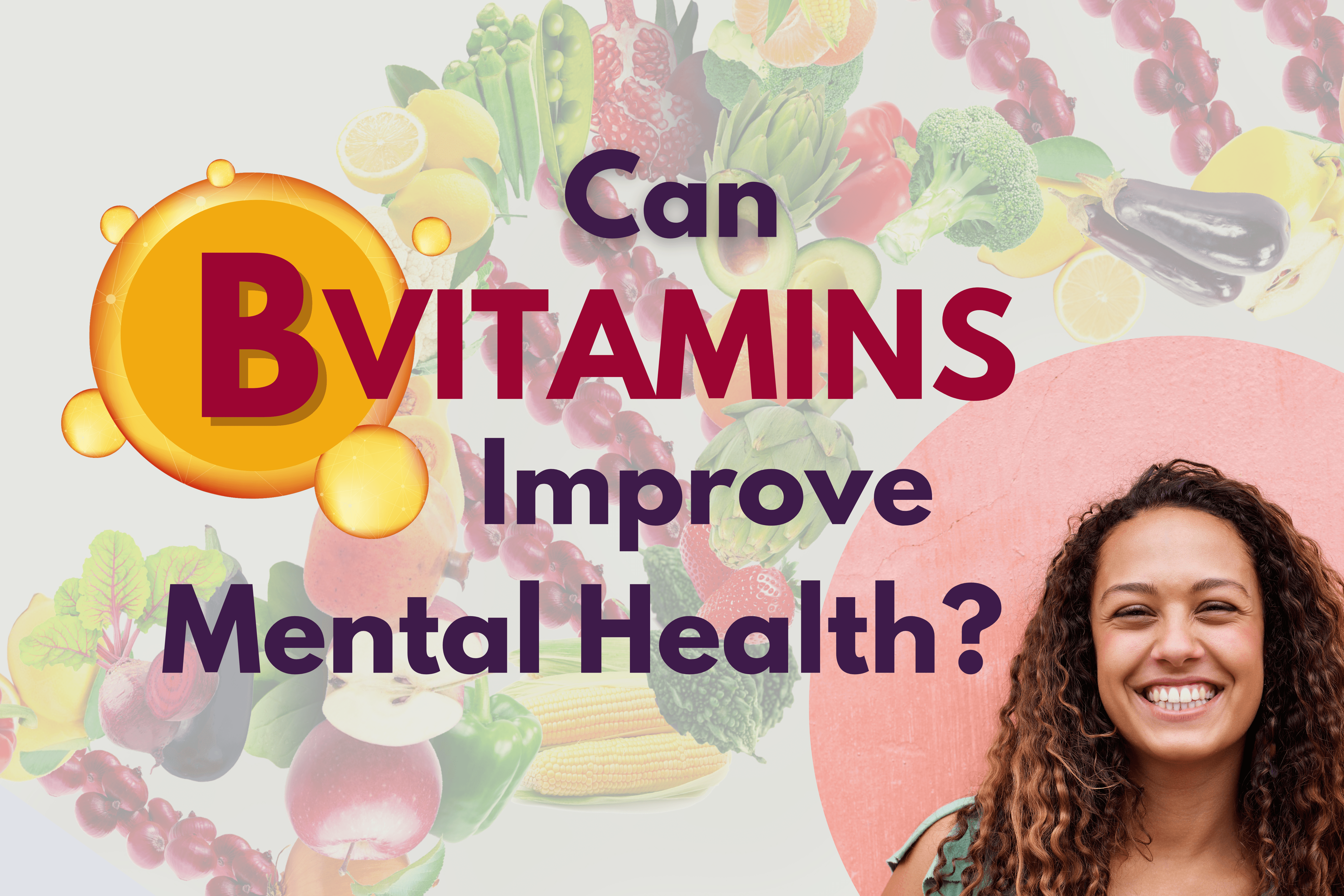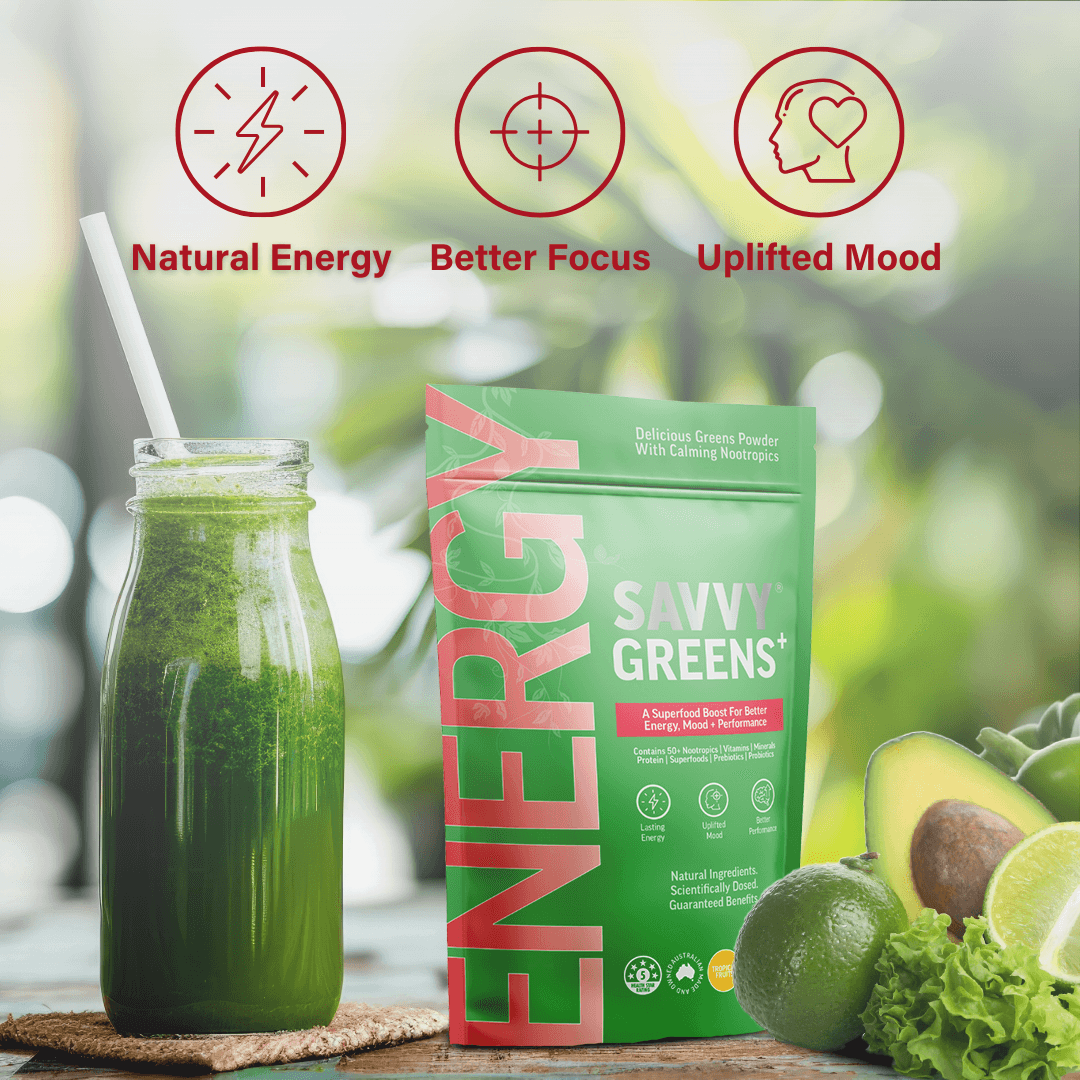
Can B Vitamins Improve Mental Health?

|
Article at a glance |
|
What is vitamin B complex?
Vitamin B-complex is a combination of eight different vitamins. They are vitamins B1, B2, B3, B5, B6, B7, B9, and B12.
You can get most of them from different foods, but some people have to take supplements to maintain a balance in their system.
Doctors, nutritionists and health experts advise taking whole B-complex vitamins over individual vitamins. This is because individual forms of vitamin B are not absorbed well by the body compared to all of them together. B Vitamins are like a group of musicians, when they’re together, they’re a great band, but when they are by themselves – they don’t work nearly as well.
What are the benefits?
As some of the most fundamental vitamins, B-vitamins help to maintain your overall mental and physical well-being.
A deficiency in B-vitamins can have a negative influence on your memory function. This leads to cognitive impairment, dementia, and depression. The B-vitamins that are most beneficial to your mental health are vitamin B1, B9, and B12.
The benefits of consuming B vitamins are:
- They support healthy brain function and cognition
- They ease stress and improve your mood
- Promotion of cell growth and division
- They help to maintain a healthy skin and muscle tone
- They help increase the rate of cell metabolism
- Enhancing immune and nervous system function
- They help make and balance sex hormones in the adrenal glands

B-vitamins for men
B-vitamins are said to raise the levels of testosterone in men. They are also known to help increase strength and build muscles.
B-vitamins for women
B-vitamins are necessary for pregnant and breastfeeding women. They help in the brain development of babies and also reduce the risk of congenital anomalies. They also help boost energy, ease nausea and reduce the risk of complications during birth.
The best absorption of B-vitamins
Your body is more receptive to B-vitamins from whole foods. Therefore, when you are taking supplements, you should look for those that have methylated B-vitamins. It is the active form found in whole foods and is absorbed well by the body.
The Recommended Dietary Intake of B Vitamins in Australia for adults is:
This is Australia New Zealand Food Standards Code – Schedule 1 – RDIs (Recommended Dietary Intake) and it came into effect in 2016. Australia’s RDI system is for adults, while usually men and women will have differing needs. Moreover, the recommended dietary intake is often seen to be as quite low.
B1: 1.1 milligrams (mg)
B2: 1.7 mg
B3: 10 mg
B5: 5 mg (RDA not established)
B6: 1.6 mg
B7: 30 micrograms (mcg)
B9: 200 mcg
B12: 2 mcg
Vitamin B1

Also known as thiamin, it is responsible for the making of Adenosine Triphosphate (ATP). This molecule transports energy inside the body cells. This is one of the body’s major energy sources.
Without thiamin, the brain wouldn’t have enough energy to function normally. This can cause mental health problems such as memory loss, anxiety, irritability, and insomnia.
The most common sources of thiamin are beef, pork, whole grains, peas, legumes, beans, nuts, brown rice, and organ meat.
Vitamin B2

It is also known as Riboflavin. It supports healthy skin and hair and promotes good eyesight.
You will find the right amount of B2 that your body needs in dairy products such as cottage cheese, milk, egg yolks, sun-dried tomatoes, almonds, salmon, spinach, soybeans, red meat, and dark meat.
Vitamin B3

Also known as niacin, vitamin B3 helps in maintaining a healthy appetite and proper cell development.
Niacin deficiency can lead to digestive issues that can cause nausea and abdominal cramps. Some top sources are turkey, peanuts, tuna, liver, chicken, and mushrooms.
Vitamin B5

It is otherwise known as pantothenic acid. Its core function is to make blood cells and produce important sex and stress hormones.
B5 can also be used on the skin to provide relief from conditions such as eczema, diaper rash, and insect bites.
Get your daily dose of B5 from vegetables such as broccoli, cabbages, salmon, avocado, white and sweet potatoes, and whole-grain cereals.
Vitamin B6

Also referred to as Pyridoxine, vitamin B6 supports the immune system hence helping the body fight off infections. Good sources of B6 are carrots, potatoes, fish, poultry, milk, bananas, peas, nuts, spinach, beef, and avocado.
Vitamin B7

B7 goes by two other names, biotin and vitamin H. It helps in the breakdown of body fats. The bacteria in the body are responsible for the production of biotin.
Biotin is found in cheese, wheat bran, mushrooms, cauliflower, egg yolk, soybeans, nuts, bananas, and organ meats.
Vitamin B9

It is referred to as folate and also exists in a synthetic form known as folic acid. Folate helps in the growth of red blood cells.
Folate prevents congenital anomalies. If a pregnant woman lacks B9, the baby could be born with neural tube disorders such as spina bifida. Low levels of folate have also been linked to depression.
The sources of folate include green leafy vegetables, asparagus, brussels sprouts, nuts, beans, citrus fruits, and peas.
Vitamin B12

B12 also goes by the name cobalamin. It helps in the formation of red blood cells. A deficiency in this vitamin can disrupt the nervous and circulatory systems.
It can also lead to psychological conditions such as depression, dementia, and paranoia. The main sources of B12 are beef liver, clams, eggs, milk, meat, and cheese.
In conclusion, maintaining a healthy diet can help you avoid mental conditions caused by a lack of B-vitamins. Also, keep in mind that B supplements are not a substitute for proper medication for mental problems.
Always consult your doctor before taking any supplements if you are concerned that you are not taking in enough through a regular diet.
References:
[1] Food Standards Australia New Zealand RDI[2] Better Health Victoria – Vitamin B Complex
[3] Harvard School of public health – B vitamins
[4] Water-soluble vitamins: B-complex and vitamin C
[5] Vitamin B-12 and depression: Are they related?
[6] Vitamin deficiency anemia
[7] Vitamin B-12 deficiency
[8] Vitamin B complex








